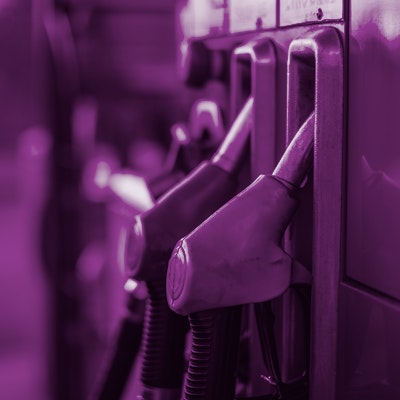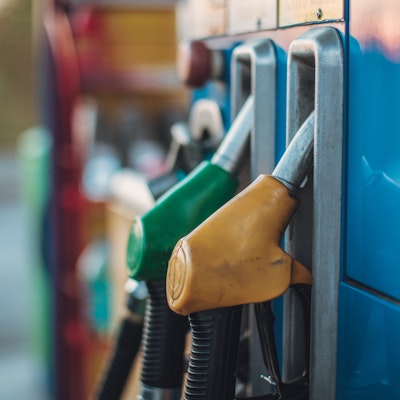Economy
Global

The quest for profits, commitments to social impact, and consumer preference are driving unprecedented change in healthcare as investors pour in money, start-ups and big tech upend traditional delivery models, and patients turn to apps to access care in new ways. We are thinking differently about what supports health, redirecting resources into social determinants like edu...

How do we sustain growth in a volatile and rapidly changing economy? What’s the best way to foster productivity and fulfillment at work? How will A.I. change the job market? Can we avoid a recession? And how can we allow everyone a fair chance at economic prosperity and upward mobility?

Economic uncertainty continues its reign of confusion, vexing financial leaders, regulators, and consumers with worrisome inflation and unpredictable markets. Experts weigh in on whether we can avoid a recession, what today’s banking and political difficulties signal about the future of lending and saving, and how workplace developments, A.I. advances, and complex geopolit...


While the workforce is still adapting to the changing economic landscape, one thing is certain — the traditional blueprints for education and the workplace have been ripped up. It's the perfect time to reimagine something better. How are workers managing amidst the wake of the pandemic and ongoing economic crises? Is the four-year degree actually helping young people launc...


Inflation is dominating the financial news headlines, and millions of Americans are really hurting from high prices for gas and food. The unemployment rate is still low, but some companies are announcing layoffs and hiring freezes, and it’s hard to see the light at the end of the economic tunnel. There are more questions than answers: What caused the highest inflation rate...

The world’s biggest banks and investors have pledged $150 trillion in assets to tackle climate change. But are these commitments actually getting us closer to net zero, considering that many of those making pledges are still profiting from fossil fuels? We know that climate change will require transformation at a scale never seen before; can the financial system propel us...

How should business leaders reconsider their growth strategy amid a new geopolitical, inflationary, and monetary policy landscape? In particular, this discussion will include insights around the macroeconomic and policy implications of the war in Ukraine, the extremely tight labor-market conditions and rising cost of talent, the dangers from persistently high inflation, th...

Perhaps the most palpable of the pandemic’s economic aftershocks have been dramatic and widespread supply chain disruptions, which have upended expectations for businesses and consumers across the country and the world. Companies that rely on the production of semiconductor chips — think computer companies, automakers, and producers of any kind of “smart” device or system...

As the rest of human activity has been globalized, so has corruption — and to such a degree that it has fueled global inequality, created extremist groups, and converted democratic institutions into autocratic regimes stripping wealth from entire nations. These organized criminals are supported by technology that can anonymize money, by a global criminal-services industry,...

Cryptocurrency is largely seen as an investment vehicle in the United States, with regular reporting on its value in the marketplace. But in other countries, especially in the developing world, such currencies are increasingly used for routine transactions, displacing more traditional money. There is growing trust and interest in this blockchain-based mechanism for both tr...

Most of the tactics that allies are employing to stem Putin’s aggressions in Ukraine are economic in nature: oil and gas embargoes, severe international banking restrictions, shutdowns of foreign business operations, and more — all with the objective of crippling aspects of Russia’s economy. But will they work? Is handcuffing a country’s economy an effective way to counter...


The industrial revolution and consequent terrible labor conditions sparked a wave of revolutions in Europe, and then a string of laws and protections for workers. As author and innovation expert Alec Ross describes it, we “rewrote the social contract.” But, Ross says, we may be due for another rewrite, as we transition from an industrial economy to one based on information...

The recent frenzy around NFTs and cryptocurrency have thrust blockchain into the spotlight. But is the true promise of the technology more profound? Joe Lubin, co-creator of Ethereum and one of the original pioneers in blockchain, joins Financial Times’ Gillian Tett to discuss the state of cryptocurrency and the implications of decentralization for the global economy.

Semiconductors are the brains powering essential technologies. A shortage is hammering industries ranging from automotive to consumer electronics to equipment makers, making clear how critical semiconductors are to American economic competitiveness and national security. But the US share of global semiconductor manufacturing stands at just 12 percent today, down from near...

In economics, debt policy can be a deeply polarizing issue. And yet, top US economists are finding that, lately, there are more innovative policy recommendations to agree on than usual. Join this conversation with economic luminaries from across the political spectrum for their insights on how to manage US debt and what it will take to get — and keep — the American economy...


Former US Treasury Secretary Lawrence Summers says the recovery includes three stages: collapse, bounce-back, and slog. We’ve experienced collapse and bounce-back already. “Now we’re now headed for a slog,” he says.

Double-digit unemployment and some permanent job losses are among the long-term consequences of Covid-19. But there is one positive side of the crisis, says Hank Paulson, former secretary of the US Treasury: The pandemic has laid bare the structural deficits that define us at the moment — deficits that we can attack and resolve. In this wide ranging conversation with Gilli...


As the US and China continue their trade war, economic instability is rising in countries around the world.

Economic growth is frequently defined as the increase in value of everything in an economy. Standard of living, access to health care, and minimum wage are some of the standard measures of economic well-being. But with the ubiquity of technology, impacts of artificial intelligence on jobs, new limits to free trade, and increased pressure to address climate, how should we n...

Through the rise of European populism — from Brexit in the West to Orban in the East, from the Swedish far right in the North to the Italy's Northern League in the South — European politics and economics have been completely altered by the emergence and strengthening of populist movements. But what are the economics behind the erosion of the centre in Europe and where is i...







